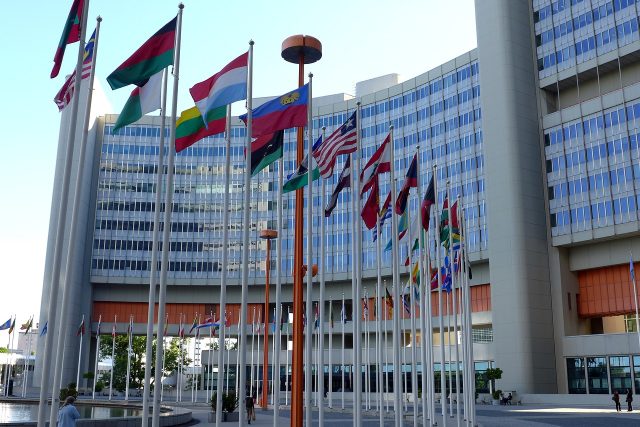Earlier this week, payment giants Visa and Mastercard agreed to lower fees charged to merchants for credit card transactions in the US, following a lawsuit spanning almost two decades.
In a move that could collectively save merchants as much as $30billion, Visa and Mastercard have agreed to reduce so-called ‘interchange’ fees by 0.04 percentage points for a minimum of three years, and to cap them at the same level seen at the end of 2023 for five years – subject to approval by the US District Court for the Eastern District of New York.
Interchange rates, set by the two payment giants, generally sit between two to four per cent of each transaction total. According to Rob Beard, chief legal officer and head of global policy at Mastercard, the agreement delivers “certainty and value to business owners, including flexibility in how they manage acceptance of card programmes”.
Currently, merchants in the US can add surcharges to transactions for consumers using American Express cards – but not on Mastercard and Visa cards. But if the settlement is approved, merchants will be able to change the rates they charge for all cards, instead of basing it on the credit card network alone.
However, the majority of interchange fees actually go to the issuer banks, to cover the card services they provide, such as customer support, fraud prevention and to cover other associated handling costs. While it remains unclear which party will take the brunt of the cut, early suggestions look as though the banks will take the biggest hit. Questions could arise over how much of an impact these cuts could have on issuing banks across the US.
In response, Kim Lawrence, president of the North America region at Visa, explained: “Importantly, we are making these concessions while also maintaining the safety, security, innovation, protections, rewards and access to credit that are so important to millions of Americans and to our economy.”
A win for merchants, but a loss for cardholders?
Matt Schulz, chief credit analyst at LendingTree, an online lending marketplace, explains that, while US merchants will enjoy savings, this may not be the case for their customers, who may even become privy to higher fees.
“This settlement is potentially a big deal for merchants’ bottom line, but the financial impact on their customers is unclear. There’s no guarantee that even a dime of these savings gets passed on to consumers.
“Merchants will now be more able to add surcharges to purchases made with credit cards that come with higher swipe fees. That can help them recoup the cost of accepting those cards, but it also risks alienating customers.
“These changes come with some real risk to merchants. For example, a high-end credit card may cost more for a merchant to accept, but the typical user of that high-end card might be an extremely desirable customer with a lot of spending power. This dilemma is going to lead to some very interesting conversations within these companies.
“The measures in this settlement that allow for more surcharging and greater competition could lead to swipe fee reductions well beyond just what is mandated. The ultimate impact of this settlement on credit card rewards and the industry as a whole will depend on how that all plays out.
“Banks have plenty of levers to pull and buttons to push when it comes to recouping revenue in cases such as these. It is reasonable to expect that we might see other types of bank fees rise once the settlement is finalised. Banks don’t tend to take these types of changes lying down.”
Impact on issuing banks
Brad Goodall, CEO and co-founder of Banked, a fintech powering open banking payments, explains how the settlement between Visa and Mastercard could impact issuing banks, and how fintech could resolve future issues: “Mastercard and Visa have committed to maintaining average interchange fees at least seven basis points lower than the current rates over the next five years, providing a period of stability for merchants after a US judge clears the settlement.

“The big questions are; will this introduce surcharging at point of purchase and if so what will that do to consumer experience and cost? Will this open a door for alternative payment methods?
“The deal will also negatively affect issuing banks, which will take a moderate hit to the revenue they collect amidst a tough macroeconomic climate for banks as interest rates remain stubbornly high. Issuing banks are largely responsible for ensuring fraud is monitored and kept out of the system and they use part of this interchange to fight fraud.
“It’s key that fintech steps up to provide reliable and importantly, safe alternative payment methods for both merchants and banks. One promising path for innovation is Pay by Bank, a payment method built on global open banking payments rails, vastly reducing fees and providing near-instant settlement, whilst shoring up revenue for issuing banks.
“The collaboration between banks and fintechs to innovate on account-to-account rails is paramount. This partnership provides a unique opportunity, particularly as issuing banks face mounting pressures from diminishing interchange fees. This pressure incentivises them to envision a future where they can chart their own course towards a new network model. By harnessing core payment services and fraud tools, they can create a novel, real-time payment method that benefits merchants and consumers.”
Bank revenues ‘remain quite steady’
Not all agree with the idea that reduced interchange fees will genuinely hurt issuing banks. Dan Carter, senior director and head of global payment strategy at Redbridge Debt & Treasury Advisory, a global financial management partner to corporations, appears to suggest this, as he highlights that consumers shouldn’t fear significant additions to their bills.

“From a consumer perspective, there should be little to no major changes. Interchange rate increases have far outpaced the proposed decreases.
“As of October 2023, high-end rewards cards issued under Visa and Mastercard have reached 2.6 per cent plus $0.10 for interchange alone – up 0.1 per cent from just April 2023. Issuers may complain and may deflect with comments about fraud losses and bad debt write-offs, but their revenues remain quite steady.
“While surcharging, allowable since 2013, is more prevalent post-COVID, merchants who accept American Express are still bound by the terms of their agreements.
“What may be allowed under Visa and Mastercard may be prohibited under American Express, a network known for aggressively pursuing ‘honour all’ and anti-discrimination practices.”
Looking to the future of payments
Kjeld Herreman, head of strategy advisory at RedCompass Labs, a fintech consultant and accelerator, also explains how, even if the settlement comes into play, merchants worldwide could still benefit from other payment solutions; even those based across Europe, where interchange fees sit at around 0.3 to 0.4 per cent.

“Every card transaction that is made costs businesses money, and they usually must wait two to three days after taking payment for any money to reach their account. When it arrives, they’ve lost a chunk to interchange fees. Money that could be used to pay staff, suppliers, rent, and bills goes to the payment processor. Not only is the business worse off in real terms, but waiting for the money to arrive can create pressure with suppliers and staff who need to be paid.
“P2B real-time payments are a solution for merchants everywhere who are tired of paying interchange fees and waiting days for their money to arrive. The faster the payment, the faster the business is paid, the faster it can reinvest, and the faster it grows.
“The EU is attempting to tackle this issue to reduce the power of large foreign businesses. The European Payments Initiative is building a card-like scheme on top of real-time payment rails, as well as adapting interchange and chargeback processes. It is also mandating that all banks must be ready to send and receive real-time payments by the end of 2025, levelling the playing field between PSPs and card networks.”




The Most Read
Сryptocurrencies
Bitcoin and Altcoins Trading Near Make-or-Break Levels
Financial crimes
Thieves targeted crypto execs and threatened their families in wide-ranging scheme
Financial crimes
Visa Warning: Hackers Ramp Up Card Stealing Attacks At Gas Stations
News
Capitalism is having an identity crisis – but it is still the best system
Uncategorized
The 73-year-old Vietnamese refugee is responsible for bringing Sriracha to American consumers
Uncategorized
Electric Truckmaker Rivian, Backed By Amazon, Ford, Raises Whopping $1.3 Billion